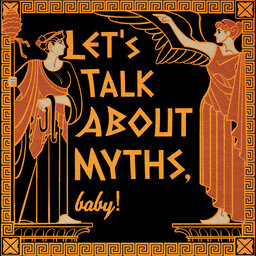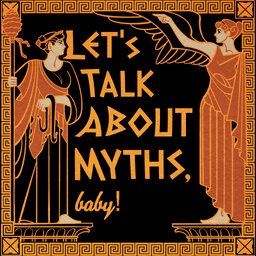Raging Misogynist or Original Social Justice Warrior? The Murky Life of Euripides
We have more of Euripides' work than either of the other tragedians combined and yet the details of his life, him as a real person composing real art, are frustratingly lacking. And when they're not lacking, they're often just slander or wild misunderstandings of history. Today we begin looking at the life and times of Euripides, the first BEST playwright.
CW/TW: far too many Greek myths involve assault. Given it's fiction, and typically involves gods and/or monsters, I'm not as deferential as I would be were I referencing the real thing.
Sources: Brill's Companion to Euripides "Life of Euripides", William Blake Tyrell; Isabelle Torrance's Euripides; Euripides' Bacchae, translated by TA Buckley; Euripides' Phoenissae, translated by EP Coleridge; Euripides' Alcestis, translated by David Kovacs; Euripides' Trojan Women, translated by EP Coleridge.
Attributions and licensing information for music used in the podcast can be found here: mythsbaby.com/sources-attributions.
Let's Talk About Myths, Baby! Greek & Roman Mythology Retold
The most entertaining and enraging stories from Greek mythology and the wider Ancient Mediterranean …Social links
Follow podcast
Recent clips

AHFG Book Club: Jenny Williamson's Enemy of My Dreams
1:16:02

RE-AIR: Conversations: A Long and Storied History of Sparta, Modern Misuse & Misconception w/ Stephen Hodkinson
1:40:25

Hermes Historia: Giorgos the Oikist, Colonization in Greek Antiquity
42:43
 Let's Talk About Myths, Baby! Greek & Roman Mythology Retold
Let's Talk About Myths, Baby! Greek & Roman Mythology Retold